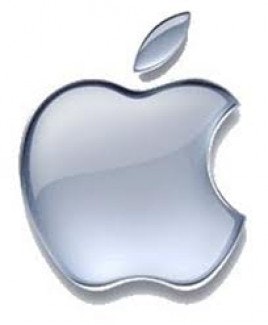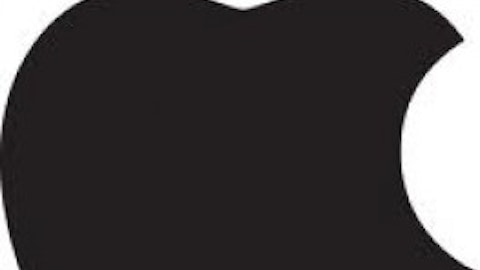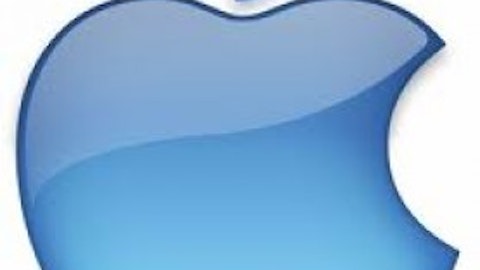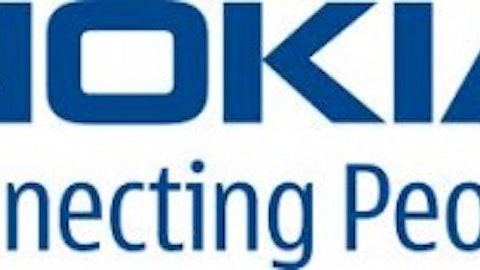
Apple Inc. (NASDAQ:AAPL), for all intents and purposes, remains a company largely dependent on one product: the iPhone. In just the last few months, there’s been a wave of evidence suggesting that demand for smartphones in general has cooled significantly.
That’s not likely to result in a great quarter for Apple, especially given that its flagship phone is a generation behind its competitors.
Apple’s dependence on the iPhone
Don’t be fooled. When it comes to Apple, there’s really only one product that matters. Sure, the iPad accounts for a large and growing portion of the company’s revenue and profit, but the iPhone is still king of the company.
Last quarter, the iPhone accounted for half of Apple Inc. (NASDAQ:AAPL)’s revenue. Factoring in iTunes’ sales, which accounted for about 10%, it’s even bigger than that. Even more impressive, the iPhone generates about two-thirds of Apple’s profit.
Of course, that profit figure was based on estimates from last year. Given the ongoing trends in the smartphone market, the ratio could soon change.
The smartphone market is saturated
But that change won’t be good for Apple Inc. (NASDAQ:AAPL)’s shareholders. While the company’s long-term future may rest with the iPad, that’ll be because the market for iPhones has shrunk.
Based on recent events, it’s clear that the market for smartphones (at least in the US) is largely saturated. At this point, it may be reasonable to assume that everyone who could afford and desire an iPhone, already has one, and while consumers will upgrade to the newer model every few years, the growth in iPhone sales seen over the last few years won’t be repeated.
So far, 2013 has seen the release of four flagship smartphones: Samsung’s Galaxy S4, HTC’s One, Sony Corporation (ADR) (NYSE:SNE)’s Xperia Z and Research In Motion Ltd (NASDAQ:BBRY)’s Z10.
With the exception of Sony Corporation (ADR) (NYSE:SNE)’s offering (which was only recently brought to the US), all the other phones have seen a very tepid reception. Samsung’s Galaxy S4 had a strong launch, but demand rapidly tapered off, and Samsung shares plummeted after the company reported disappointing earnings last month. Like Apple, Samsung remains largely dependent on its Galaxy handsets for a big chunk of its profit.
For HTC, the story was nearly identical — a strong launch, but not enough to make for a good quarter.
Research In Motion Ltd (NASDAQ:BBRY) shares were eviscerated when the company announced that it had shipped less than 3 million BB10 devices last quarter, leading some (such as myself) to question BB10’s future as a viable mobile operating system.
But what’s even more notable about these devices is that they are all a generation ahead of Apple Inc. (NASDAQ:AAPL)’s iPhone 5. Granted, specs aren’t going to sway an Apple devotee into switching operating systems, but all the aforementioned phones boast sharper screens, faster processors and better cameras than the iPhone 5.
Consumers aren’t upgrading
AT&T Inc. (NYSE:T) and T MOBILE US INC (NYSE:TMUS) have announced new plans to allow subscribers to upgrade their phones more often. Too bad no one wants to upgrade anymore.
The Wall Street Journal reported on Wednesday that fewer people are upgrading their smartphones. Last year, the US upgrade rate turned negative.





